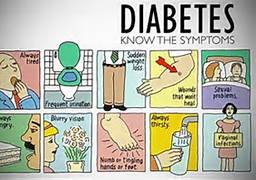Diabetes and Leptin Resistance

|
Voltaire |
For 50,000 years or more, humans relied on a remarkable, naturally-occurring hormone called leptin to regulate what we ate, and it told our brains when we'd had enough. But somehow in recent years that regulator has become confused, and suddenly it seems like people just don't know how to stop eating. Researchers didn’t discover it until 1994. They’re just now beginning to understand how crucial it is for maintaining an ideal weight and overall health.
Leptin is a hormone produced in your fat cells. One of its primary roles is to regulate your appetite and body weight. It tells your brain when to eat, how much to eat, and when to stop eating. It’s often called the “starvation hormone” or “satiety hormone.” When it’s working right, you lose your appetite after you eat enough to meet your body’s energy needs. It also tells your brain what to do with the energy it has. It is very important that your brain is able to hear the messages leptin sends, otherwise your brain thinks you're depleted and will continue to feel hungry, even starving.
If your brain does not respond appropriately to leptin, you will likely continue to eat and store more fat. It happens because many people have become leptin resistant. Leptin resistance occurs when your body is unable to properly hear leptin's signals. It happens by overexposure to high levels of the hormone, caused by eating too much sugar. If you eat too much sugar, it gets metabolized and stored as triglycerides in fat cells.
The fat cells release leptin as it results in leptin-resistance, just as it results in insulin-resistance. When you become leptin-resistant, your body can no longer hear the messages telling it to stop eating and burn fat - so it remains hungry and stores more fat. This will not only contribute to weight gain, but also increase your risk of many chronic illnesses, as leptin plays a significant, if not primary, role in heart disease, obesity, diabetes, osteoporosis, autoimmune diseases, reproductive disorders, and perhaps the rate of aging itself.
- How can you tell if you are leptin resistant
- How sleep deprivation affect leptin resistance
- Why you crave food constantly
- What are the dangers of consuming sugar











